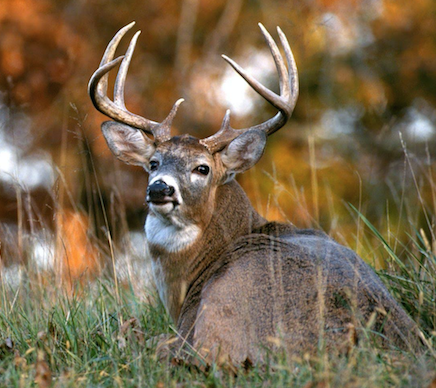Although a disease fatal to deer and elk now exists in 23 states, including Ohio, but Kentucky is currently not one of the states impacted – and the Kentucky Department of Fish and Wildlife Resources hopes to keep it that way.
Hunters traveling to other states for the holidays should know the law before bringing a harvested deer or elk back to Kentucky. Violations can trigger a fine and potential confiscation of the animal and hunting equipment used to take it.
Every state has regulations relating to the movement of carcasses and carcass parts. These laws are designed to stop the spread of chronic wasting disease (CWD), which is fatal to deer and elk.

Kentuckians hunting in other states need to be aware of the laws of the state they are hunting, the states they are traveling through and their home state when it comes to bringing back a harvested deer or elk.
It is a violation of Kentucky law to bring intact carcasses and some carcass parts from harvested deer and elk from CWD-positive states into Kentucky.
Kentucky, which does not have the disease in its animals, prohibits the importation of whole carcasses or high-risk body parts such as the brain, spinal cord, eyes, lymphoid tissue from deer or elk killed in CWD–infected states and provinces.
Chronic wasting disease has been detected in some of Kentucky’s neighboring states. The disease was confirmed in some Ohio deer just last year.
Kentucky hunters taking deer during Ohio’s upcoming muzzle loading season are prohibited from returning to the Commonwealth with an intact carcass. They may bring back deboned meat, hindquarters, antlers attached to a clean skull plate, a clean skull, clean teeth, hides and finished taxidermy products.
They may take the meat to processers and the mountable parts to taxidermists only after the high-risk parts have been removed.
CWD also has been confirmed in neighboring states Missouri, Illinois, West Virginia and Virginia. CWD is found in 23 states and two Canadian provinces.
CWD is a contagious and always fatal neurological disease that affects deer, elk and other cervids native to North America. Currently, there is no evidence that CWD can be transmitted to humans.
To help prevent the entry of CWD into the state, the Kentucky Department of Fish and Wildlife Resources discourages hunters from bringing back high-risk parts of deer or elk taken in any state, regardless of CWD status.
Since 2002, Kentucky has tested more than 25,000 deer and elk for the presence of the disease. All results have been negative.
For more information about CWD and carcass importation laws into Kentucky see the 2015-16 Kentucky Hunting Guide or visit this website.
From F&W Communications





















